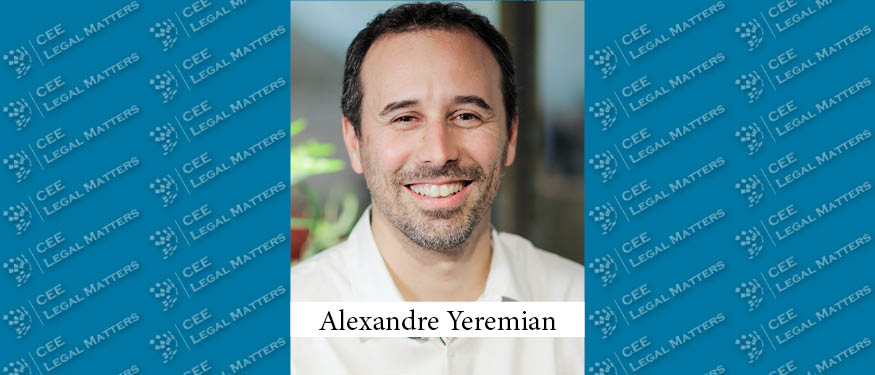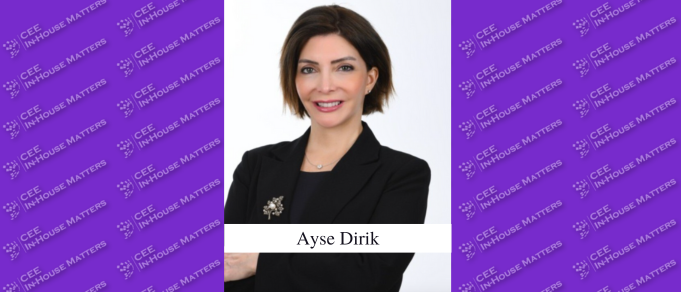Jarvis Legal, a cloud-based platform for legal practice management, has been a part of the LexisNexis family since Jul 2024. Jarvis Legal CEO Alexandre Yeremian shares its journey – from tackling inefficiencies to pioneering AI innovation – and plans for its global future.
CEELM: You were one of the co-founders and the CEO of Jarvis Legal before it joined the LexisNexis family. What first drew you to the world of legal tech?
Yeremian: My journey into legal tech began indirectly. In 2005, I left a large multinational company to start my own IT business. At that point, I realized the corporate environment wasn’t the right fit for me – I was drawn to entrepreneurial challenges and opportunities to build something meaningful from scratch. My first company specialized in IT management, security, cloud computing, and hardware like printers and computers.
Over time, we began to work with more and more lawyers as clients. This was my introduction to the legal sector, a world I wasn’t familiar with at the time. However, I quickly recognized lawyers’ unique challenges and the lack of tailored technology solutions to address those problems. Lawyers were managing a significant workload under tight deadlines, often with outdated tools or inefficient processes.
In 2011, I started speaking with lawyers and law firms more deeply to understand their pain points. We identified opportunities to create better solutions and began developing ideas. After about 18 months of beta testing and gathering feedback from early users, we decided to commit fully to this vision. In 2013, we officially launched Jarvis Legal with my co-founder. The name "Jarvis" was deliberate – it embodied the vision of creating an intuitive virtual assistant that would support lawyers, freeing them from repetitive tasks and enabling them to focus on practicing law.
CEELM: What inspired the development of Jarvis Legal, and what gaps did you see in the market?
Yeremian: When we started, there was a clear need for legal professionals to work more flexibly. Lawyers wanted the ability to access client data, case files, and documents from anywhere at any time, but existing tools made this extremely difficult. They were tied to complex systems involving VPNs, manual backups, and localized servers – none of which were user-friendly or efficient.
This inspired us to create a solution that emphasized mobility, collaboration, and simplicity. We envisioned a system that lawyers could use on any device, whether it was a laptop, tablet, or smartphone. We understood that their work often involved emergencies and unexpected issues, so having instant, secure access to their data was non-negotiable.
Another major gap was in security and confidentiality. Handling sensitive client data is central to legal work, and we knew that trust in the platform would be essential. From day one, we built Jarvis with a focus on robust security measures and data sovereignty. For example, all data is hosted in compliance with GDPR, ensuring that sensitive information remains secure and never migrates to jurisdictions where privacy protections may differ. This was particularly important to combat the widespread but misguided belief among lawyers that in-office servers were safer than the cloud. We wanted to show them that modern, professional cloud solutions could actually offer superior security.
CEELM: What exactly is Jarvis Legal, and how does it meet these needs?
Yeremian: Jarvis Legal is a cloud-based legal practice management software designed specifically for lawyers. It’s a SaaS solution, so there’s no need to install anything – all you need is a web browser like Chrome or Safari.
The platform enables lawyers to manage their clients, matters, and billing seamlessly. You can track time, manage expenses, generate invoices, and store documents securely. Jarvis integrates deeply with tools like Microsoft 365, allowing users to synchronize emails, calendars, and tasks. It also offers document automation, where law firms can upload their templates, and Jarvis automatically fills them with client data like names, addresses, and contact details.
Beyond these core functions, Jarvis incorporates advanced features powered by generative AI.
For example, our virtual assistant, Toni, can automate repetitive tasks like comparing document versions, summarizing lengthy legal texts, or even drafting LinkedIn posts. With voice recognition, you can ask Toni to create a matter, draft a contract, or classify emails – all in real time.
We also focus on practical tools that save lawyers time, like an automatic timer that tracks the time spent on various matters and resumes automatically when you switch between tasks. For law firms in France, we’ve included features like accounting modules and e-signatures to streamline local compliance. Everything is designed with one goal in mind: making lawyers’ lives easier so they can focus on their clients.
CEELM: How has Jarvis Legal evolved over the past decade?
Yeremian: When we first launched, Jarvis was a relatively simple tool focused on time tracking and matter management. Over the years, we expanded its functionality significantly, adding features like document management, task automation, email integration, and advanced reporting.
While the features have grown, the underlying technology has remained consistent. From the start, we made solid architectural choices, using frameworks like PHP and Symfony, which have allowed us to scale without needing major overhauls. This stability has been crucial as we’ve grown our user base to thousands of customers across 40 countries, including Western Europe, the US, Chad, Israel, and many more.
Today, Jarvis is available in five languages – including French, English, German, Dutch, and Spanish. It also supports multi-currency billing, making it versatile for firms operating in diverse markets. As a cloud-based solution, it’s incredibly easy to adopt, which has been a key factor in its success.
CEELM: What sets Jarvis Legal apart in the market?
Yeremian: Our integration of generative AI is a major differentiator. While many tools use AI for basic queries, we’ve gone further. Toni, our AI assistant, doesn’t just provide information – it actively performs tasks to automate what was previously manual and time-consuming. You can ask Toni to compare documents, translate them, analyze a court decision, create a matter, a contact, an appointment or even help write social media posts. With voice recognition, these tasks become even more intuitive, allowing lawyers to interact with the system naturally.
Another key strength is our user-friendly design. Lawyers can start using Jarvis immediately without needing extensive training. This accessibility, combined with the platform’s powerful features, has made it a game-changer for firms of all sizes.
CEELM: How do you see generative AI shaping the legal sector, now and in the future?
Yeremian: I believe that generative AI is already revolutionizing the way legal professionals work. Tasks like drafting, summarizing, and analyzing documents can now be done in a fraction of the time, freeing lawyers to focus on more strategic aspects of their practice.
Our vision, particularly through the integration with LexisNexis, is to combine legal content with practice management software in a seamless way. Lawyers don’t want to juggle multiple tools – they need a single, comprehensive platform that addresses all their needs. We’re actively working on this integration and plan to roll it out by 2025.
In the long term, I see generative AI becoming even more embedded in the legal workflow, not just as a tool for efficiency but as a way to enhance decision-making and strategy. However, this will require ongoing attention to ethics, data security, and transparency to ensure widespread adoption.
CEELM: What challenges do law firms face when adopting generative AI, and how can they overcome them?
Yeremian: The biggest challenge is trust. Lawyers need to be confident that their data are secured and won’t be misused. They also want assurances about how AI models are trained and whether their data could potentially be reused or exposed to bias.
Adoption also requires a cultural shift within law firms. Transitioning to a new system can disrupt established workflows, and it’s essential to provide proper training and support. Designating a project manager within the firm can help streamline this process, ensuring that the transition is smooth and that the team embraces the new tools.
CEELM: What are Jarvis Legal’s plans for the future?
Yeremian: In 2025, we’re planning a major international expansion. While we already have users in many countries, this will be the first time we actively target new markets with a structured approach. Central and Eastern Europe is a key focus area, and we’re tailoring our software to meet local legal and regulatory requirements even further.
This expansion is an exciting step, and we’re confident that lawyers worldwide will see the value in what Jarvis has to offer. By addressing universal challenges with innovative, user-friendly solutions, we’re well-positioned to become a global leader in legal tech.

















